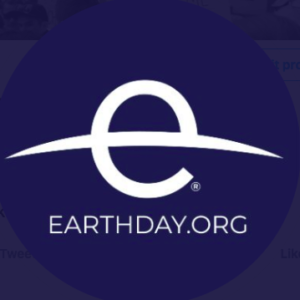Green Cities
EDN Week in Review: Environmental News for Aug. 5-10
August 10, 2018
Climate Impacts and Solutions
Wildfires in the Western U.S. continue to burn, as California’s Mendocino Complex Fire has become the largest in the state’s history (Joseph Serna, James Queally, Alene Tchekmedyian, LA Times). The smoke from the fires in western states has traveled thousands of miles to the east coast. (Yessenia Funes, Earther).California is standing strong in the face of federal action to roll back clean vehicle standards. (Hiroko Tabuchi, New York Times)Smoke from the western fires is making it all the way to the East Coast and beyond (at least aloft–mostly above a mile above the surface). Here’s the vertically integrated smoke (HRRR model from last night). Another map showed some smoke near the surface even in New England. pic.twitter.com/0Jl6WDAFjg
— NWS San Diego (@NWSSanDiego) August 8, 2018
“We have fires raging, hundreds of thousands of acres burning. We saw devastating flooding and mudslides six, seven months ago,” he said, invoking recent wildfires north of San Francisco that have killed seven people. “We see the havoc that climate change brings to the environment, and the last thing we need to do is to close our eyes to it.” More…Researchers have developed more cost-effective and efficient solar cells. (Matt McGrath, BBC)
“…according to estimates, with a 15% efficiency and a 20 year lifetime, organic solar cells could produce electricity at a cost of less than 7 cents per kilowatt-hour. In 2017, the average cost of electricity in the US was 10.5 cents per kilowatt-hour, according to the US Energy Information Administration….More…Recommended Reading: “Don’t despair – climate change catastrophe can still be averted” (Simon Lewis, The Guardian); “The world is losing the war against climate change” (The Economist); “2018 Is Shaping Up to Be the Fourth-Hottest Year. Yet We’re Still Not Prepared for Global Warming.” (Somini Sengupta, New York Times)
Ending Plastic Pollution
New Zealand announced it will ban single-use plastic bags over the next year (Kate Lyons, The Guardian).“Every year in New Zealand we use hundreds of millions of single-use plastic bags. A mountain of bags, many of which end up polluting our precious coastal and marine environments and cause serious harm to all kinds of marine life, and all of this when there are viable alternatives for consumers and business.” More…Dominica will be banning single-use containers (Sarah Gibbons, National Geographic).
Protecting the Environment, Humans and Other Species
A court ruled the EPA should not have allowed a pesticide to continue to be used, despite scientific evidence it’s harmful to human health. (Michael Biesecker, AP)“The panel held that there was no justification for the EPA’s decision in its 2017 order to maintain a tolerance for chlorpyrifos in the face of scientific evidence that its residue on food causes neurodevelopmental damage to children,” Judge Jed S. Rakoff wrote in the court’s opinion. More…A new study indicates that forests thrive with a diversity of trees, and animal and fungus species.
A team of researchers led by the German Centre for Integrative Biodiversity Research (iDiv) and the Martin-Luther-University Halle-Wittenberg has published the results in the new issue of Nature Communications. They illustrate that biodiversity must be viewed as a whole in order to maintain the performance of forests. More…A jury in California found that chemical company Monsanto is liable to pay damages to a man whose cancer was caused its Roundup herbicide. (Tina Bellon, Reuters)
Brent Wisner, a lawyer for Johnson, in a statement said jurors for the first time had seen internal company documents “proving that Monsanto has known for decades that glyphosate and specifically Roundup could cause cancer.” More…An upcoming UN conference will address threats to sea life. (Robin McKie, The Guardian)
“We need a legally binding mandate to protect, not just to exploit our oceans.” More…
